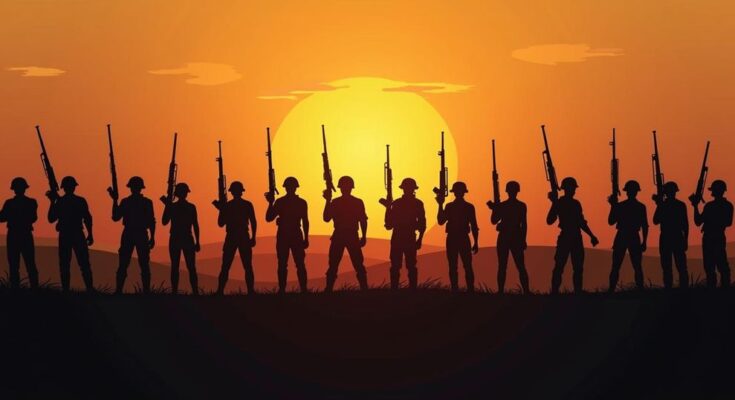The M23 rebel group in eastern Congo generates approximately $300,000 a month from mining operations, particularly in tantalum production, contributing to ongoing humanitarian crises due to armed conflicts and human rights violations. A need for international sanctions is emphasized to prevent further exploitation and suffering among civilians.
A rebel group known as M23 is reported to generate approximately $300,000 per month through its control of the Rubaya mining area located in eastern Congo. The United Nations Security Council was informed that this region is rich in tantalum, a vital mineral heavily utilized in the manufacturing of smartphones and computers. According to Bintou Keita, the head of the U.N. mission in Congo, Rubaya contributes over 15% of the global supply of tantalum, extracted from coltan. Keita underscored the urgent need for international sanctions against those who profit from this illicit trade, stating that without such measures, peace will remain unattainable, and the civilian population will continue to endure immense suffering. Earlier this year, the Congolese government inquired with Apple regarding its awareness of “blood minerals” potentially being present within its supply chain, further underscoring the multifaceted issues surrounding mineral extraction in conflict zones. The ongoing conflict in eastern Congo is recognized as one of the most severe humanitarian crises globally, characterized by the presence of over 120 armed groups contesting for power, land, and access to valuable resources. Reports have surfaced detailing egregious human rights violations perpetrated by certain armed factions, including mass killings and sexual violence, resulting in the displacement of approximately six million individuals in the eastern region. M23, officially known as the March 23 Movement, is predominantly composed of ethnic Tutsis and arose from the ranks of the Congolese army more than ten years ago. This group was responsible for a major offensive in 2012, during which they captured the provincial capital of Goma, a city which they currently threaten again. The Congolese government has accused Rwanda of engaging in war crimes within eastern Congo, with expert assessments from the U.S. and U.N. suggesting that Rwanda has provided military support to M23. While Rwanda refutes such allegations, it acknowledged in February the presence of its troops and missile systems in eastern Congo, citing security concerns related to an increase in Congolese military forces near its border. As of July, U.N. experts estimated the deployment of between 3,000 to 4,000 Rwandan military personnel in eastern Congo collaborating with M23, contributing to the group’s significant advances in the region. Additionally, a regional court in East Africa is currently reviewing a case initiated by the Congo against Rwanda, alleging violations of Congolese sovereignty due to the presence of Rwandan troops aiding local rebels.
The conflict in eastern Congo, particularly around the mining areas, has deep historical roots linked to ethnic tensions and geopolitical dynamics involving neighboring countries such as Rwanda. The M23 rebel group, primarily composed of ethnic Tutsis, emerged from a backdrop of previous conflicts and has been accused of various human rights violations. The region is rich in minerals essential for global technology industries, yet the exploitation of these resources has often fueled violence and suffering. The U.N. has highlighted the need for international intervention to address the ongoing situation and protect civilian populations from the consequences of armed conflict and resource exploitation.
In summary, the M23 rebel group in eastern Congo is generating substantial revenue through their control of lucrative mining operations. The international community is challenged to address the complexities of this conflict, which is deeply intertwined with resource exploitation, regional security, and human rights abuses. Without the enforcement of sanctions and effective measures against the perpetrators of this illicit trade, the prospect for peace in the region remains grim, with severe implications for the affected civilian populations.
Original Source: apnews.com




